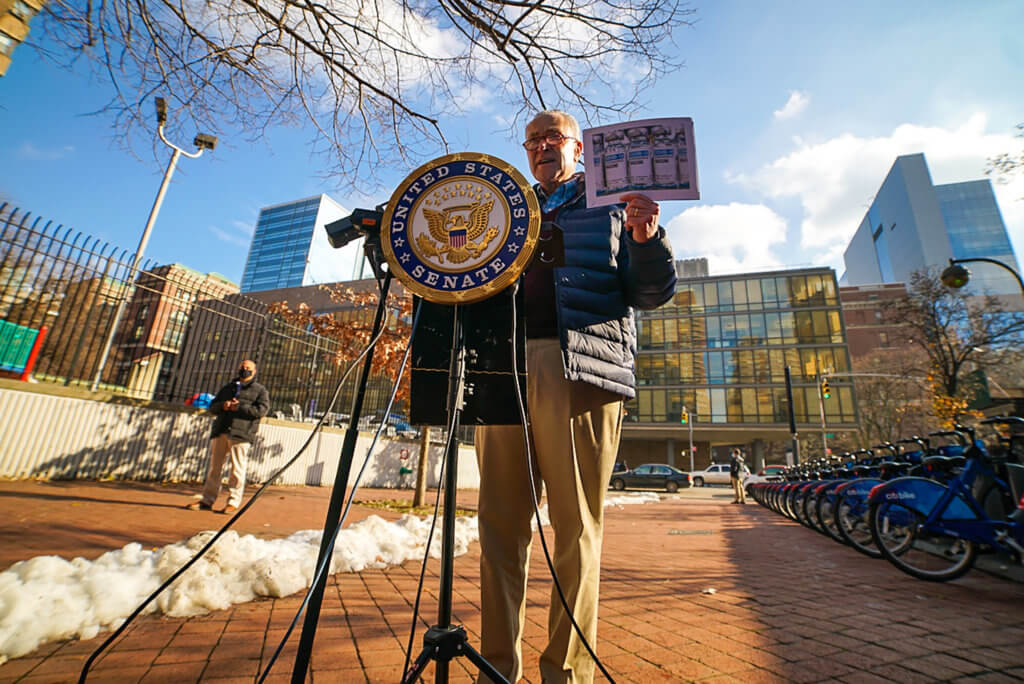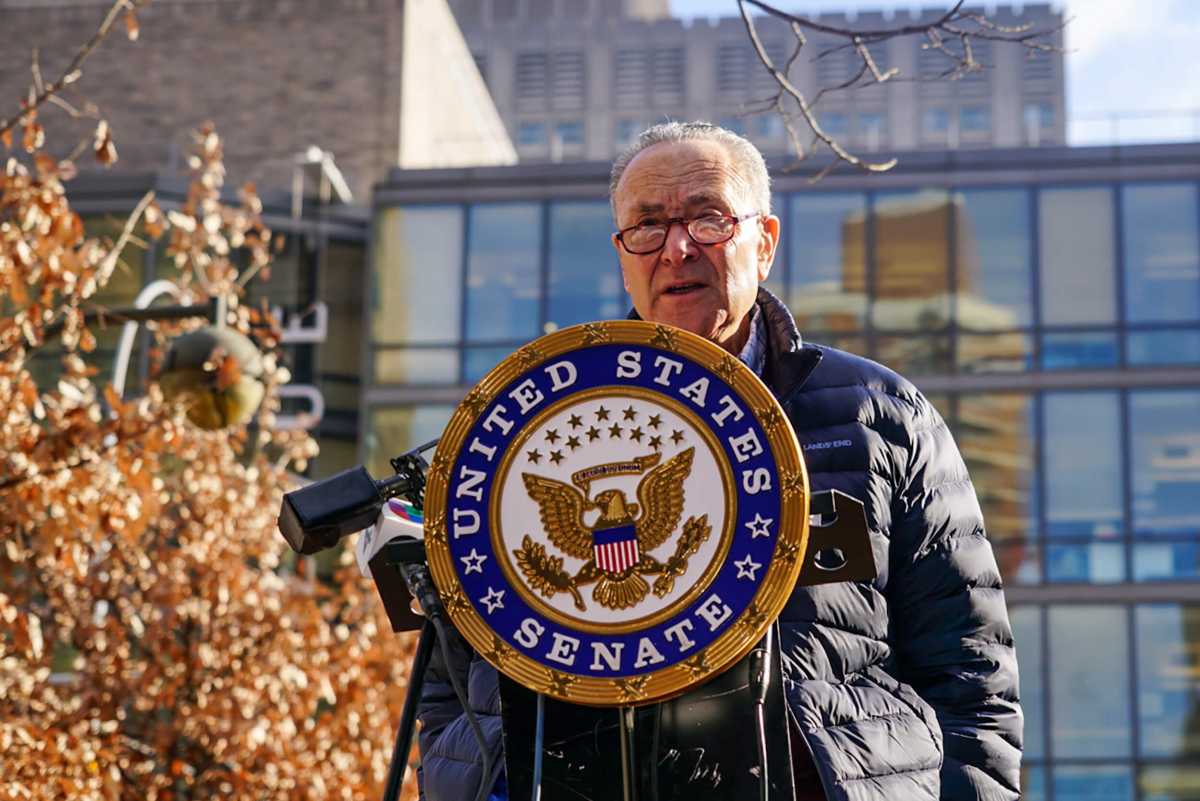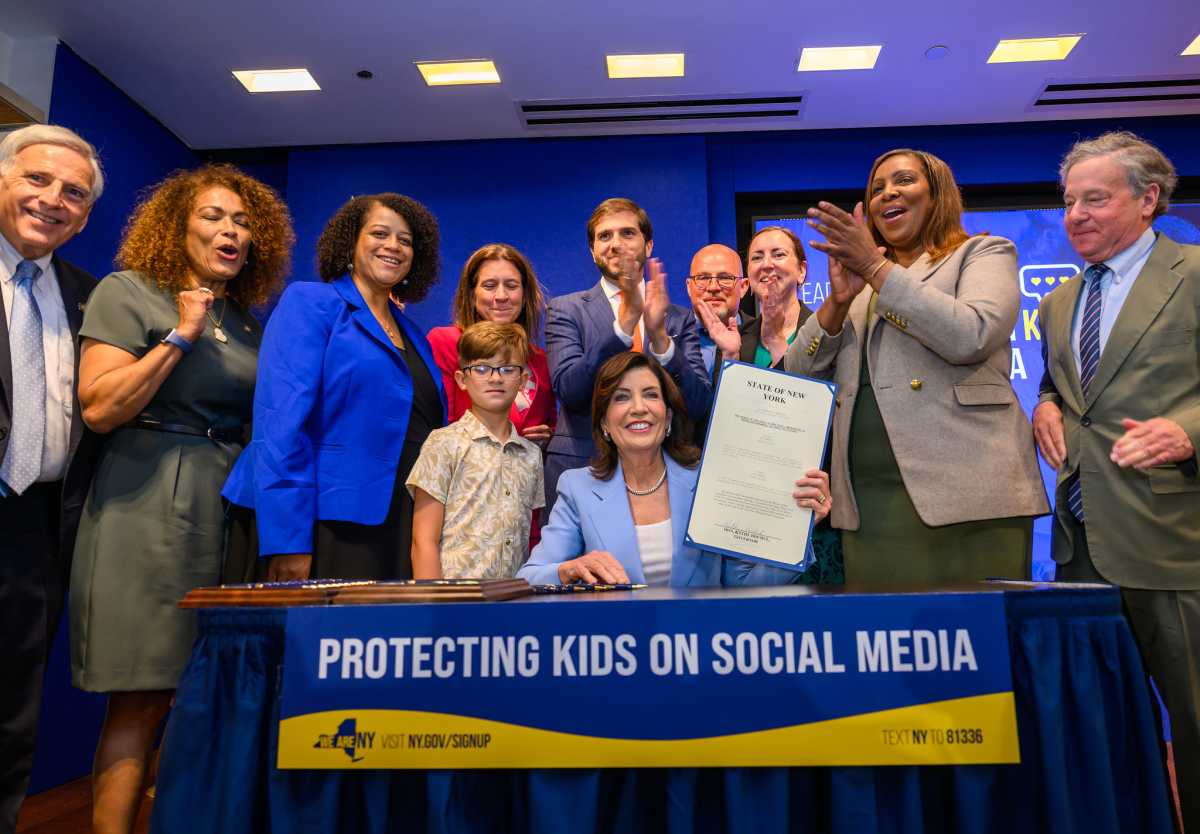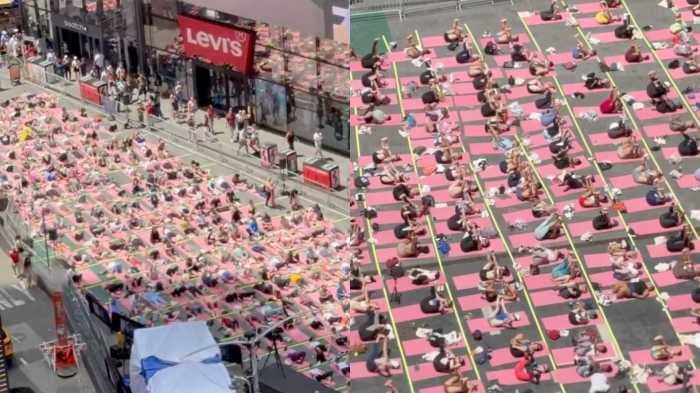Senate Minority Leader Chuck Schumer brought some good tidings to his home state of New York just a few days before Christmas by announcing that the federal government will foot the bill for the COVID-19 vaccine distribution, ensuring all New Yorkers have equal access.
On Tuesday morning, in the shadow of Bellevue Hospital on East 27th Street and 1st Avenue, Schumer declared that $1.6 billion will be delivered to both New York City and the state in hopes of facilitating public access to the vaccine.
Schumer left Washington in the early hours of the morning after joining the vote for the Coronavirus relief bill. He stressed that the stimulus package is merely an emergency dissemination of funds, and that more is most certainly needed as we move forward.
“The bill is not a long-term bill, it’s a survival bill, it gives us money that we need immediately. But make no mistake about it, we’re going have to come back and get more, but in this bill, New York does well. We get about $54 billion in a variety of different ways,” Schumer said.
New York City and the state has been allocated $1.6 billion in hopes that every New Yorker can receive the vaccine free of charge. This amount pays for the cost of the vaccine itself–along with various forms of distribution — while about $300 million will be dedicated to high-risk and underserved populations to ensure that there are no disparities in its dispersal.
Additionally, the federal aid will help pay for testing, tracing, and mitigation measures, such as home care, to help stop the spread of the coronavirus while New Yorkers are being inoculated.
“The biggest thing we can do is ensure that there are no barriers and every New Yorker can get vaccinated as quickly as possible and that the money is here,” Schumer said before breaking down how the emergency funds will be offered between the city and state.
The money issued to the city will total about $770 million versus $775 million for the state, specifically $127 million will concentrate on vaccine distribution within the state and another $127 million for the city.
A total of $646 million will be given to the city for testing, tracing, and isolation support in nursing homes, while the state will receive $648 million for the same measures.
“This is all the money that’s needed,” Schumer said. “This bill was a good start but more is needed. In terms of vaccines all the money is there.”

He added while holding a photograph of the Pfizer vaccine, “Every New Yorker will get [vaccinated] for free paid for by Uncle Sam and that’s good for the economy. It’s well worth the investment because once everyone gets the vaccine and we beat the coronavirus, unemployment will go down, small businesses will reopen, and it’ll be just what we need.”
Schumer declared that local government should not be burdened with footing the cost of distributing the widely publicized inoculation.
“[Senate Majority Leader] Mitch McConnell had blocked aid for six months. But at the very end of the year, Christmas season, he finally saw the light and we got the $900 billion with 54 billion for New York for transit, for education, for health, housing, and maybe other needs,” Schumer said.
The senator emphasized that the emergency bill was just that–a crucial order needed to ensure that over 12 million people would not lose their unemployment money the day after Christmas.
“There’s more that needs to be done. This is an emergency bill, we got to come back and do more, but when it comes to vaccines this has all the money that’s needed. We won’t have to come back,” he said, adding, “I just spoke to [President-elect] Joe Biden, he congratulated me on passing this bill as I was driving here from my house in Brooklyn. And we both agreed that we’re gonna need a bigger bolder bill and try to do it first thing when Joe Biden becomes president, so January, February, we will start.”

































